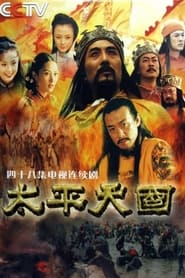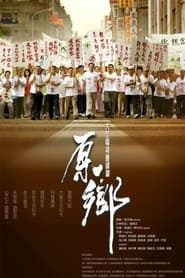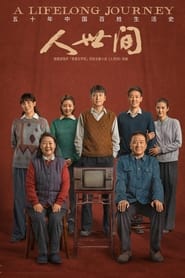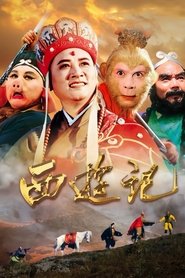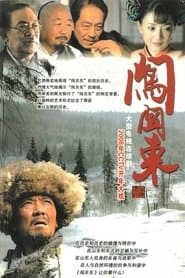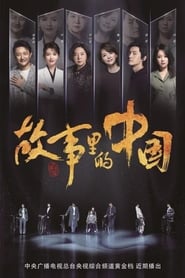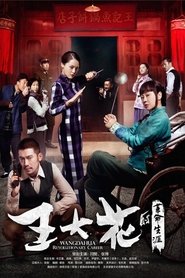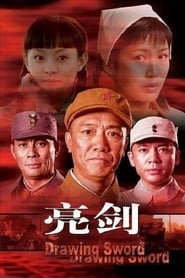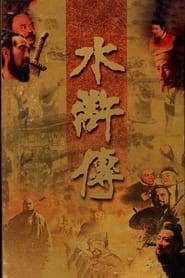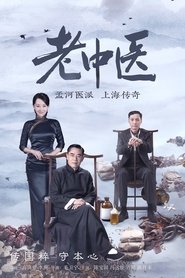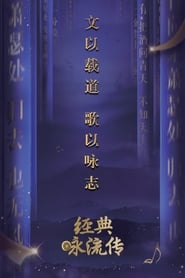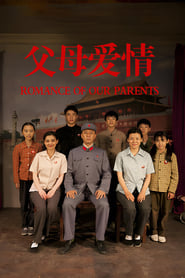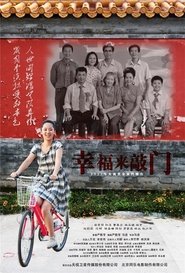Cctv 1 TV Series - Page 2
-
Taiping Rebellion
2000
Taiping Rebellion
2000
-
A Lifelong Journey
2022
star 8.7A story that details the the lives of ordinary civilians amidst the magnanimous changes in Chinese society over the years. At the end of the 1970s, the Zhou family lived in a provincial city in the north. The father, Zhu Zhi Gang, has just participated in the Third Front Movement in Xi Nan. The eldest son, Zhou Bing Yi, responds to a national call to become part of the first batch of "educated" youths sent to live and work in rural areas. The eldest daughter, Zhou Rong, follows her poet husband to the countryside of Guizhou. The youngest son, Zhou Bing Kun, is the only one left at home with their mother. In the span of 50 years, the Zhou family is swept by the tides of change in China. -
Journey to the West
1986
star 8.4Journey to the West is a Chinese television series adapted from the classical novel of the same title. The series was first broadcast on CCTV in China on 1 October 1986. The series became an instant classic in China and is still being praised as the best and most authentic interpretation of the novel. Unadapted portions of the original story were later covered in the second season, which was released in 1999. -
Pleasant Goat and Big Big Wolf: Happy, Happy, Bang! Bang!
2011
star 10Many changes are taking place on Green-Green Grassland this year. Wilie starts his school life. Paddi has an experience with supernatural power after getting hit by an apple from a tree. Most of the other goats are studying hard; Slowy invents miraculous machines; Wolffy and Wolnie keep trying to catch a goat. Those changes on Green-Green Grassland have become the dominant force to bring fun and joy to children all over the world. -
Pathfinding to the Northeast
2008
star 8.9Zhu Kaishan, a man from Shandong joins settlers in northeast China during the mid-19th century. Amidst turmoil, his family embarks on a journey to reunite, facing numerous challenges as they navigate survival in an unstable era. -
China in the Story
2019
China in the Story
2019
-
王大花的革命生涯
2015
王大花的革命生涯
2015
-
Drawing Sword
2005
star 8.6Li Yunlong, a bold and unconventional leader during the War of Resistance, leads his battalion to victory against Japanese forces. Amid rivalry and friendship with fellow general Chu Yunfei, he is wounded in battle and later finds love with nurse Tian Yu, facing the challenges of war and changing times alongside his comrades and family. -
The Water Margin
1998
star 9.2The trials and tribulations of 108 outlaws during the mid Song Dynasty. -
Doctor of Traditional Chinese Medicine
2019
star 8At the beginning of the 20th century, Weng Quanhai, a descendant of the famous 'Menghe Medical School', draws on the strengths of all the medical schools to protect and develop Traditional Chinese Medicine. As he leaves his hometown for Shanghai to embark on his inherited career. After some turbulent twists and turns, he eventually becomes a famous doctor in Shanghai with noble medical ethics and exquisite medical skills. His celebrated path takes a severe turn when in 1929, the National Government passes a Repeal Act on Traditional Chinese Medicine. Weng Quanhai, furious about this legislative ban is subsequently elected as the representative of all Traditional Chinese Medicine Doctors to protest the Act. His reputation and fame grow even further. But transformation is ever present. Facing the fall of Shanghai, Weng Quanhai actively participates in the anti-Japanese war, making ever greater contribution to the protection of Traditional Chinese Medicine. -
Dream of the Red Chamber
1987
star 9.4Dream of the Red Chamber, first released in 1987, was a television series produced by CCTV, adapted from the classic 18th century Chinese novel of the same name. It gained enormous popularity for its music, cast, and plot adaptation, being regarded by many within China as being a near-definitive adaptation of the story. -
Everlasting Classics
2018
Everlasting Classics
2018
-
绝境铸剑
2019
绝境铸剑
2019
-
Enlighten Your Life
2023
star 8In 1986, when Yugoslav nuclear power expert Lehmann came to the East China Sea to inspect nuclear power and question China's ability to build nuclear power plants, fitter Ye Jia Ming and buyer Lin Tian Chen, becomes his first supporters. But during the building of a plant, Tian Chen was corrupted by Ding Li, and accused by his superior, of variety of crimes. Feeling betrayed, Tian Chen resigns from his post and went to the United States, leaving his son Lin Qi to the Ye's family to raise. But what he didn't except, is that his son, will folllow his footstep, and as an adult become key figure, in developing nuclear weapons. -
Boonie Cubs
2017
star 8Following the adventures of Boonie Bear brothers Briar and Bramble as they learn life lessons.
